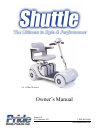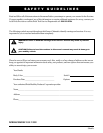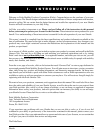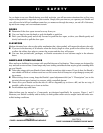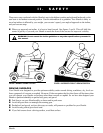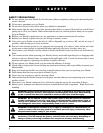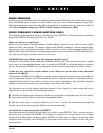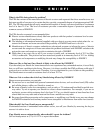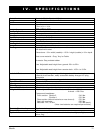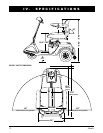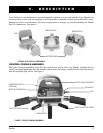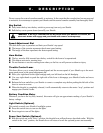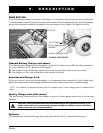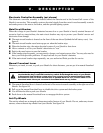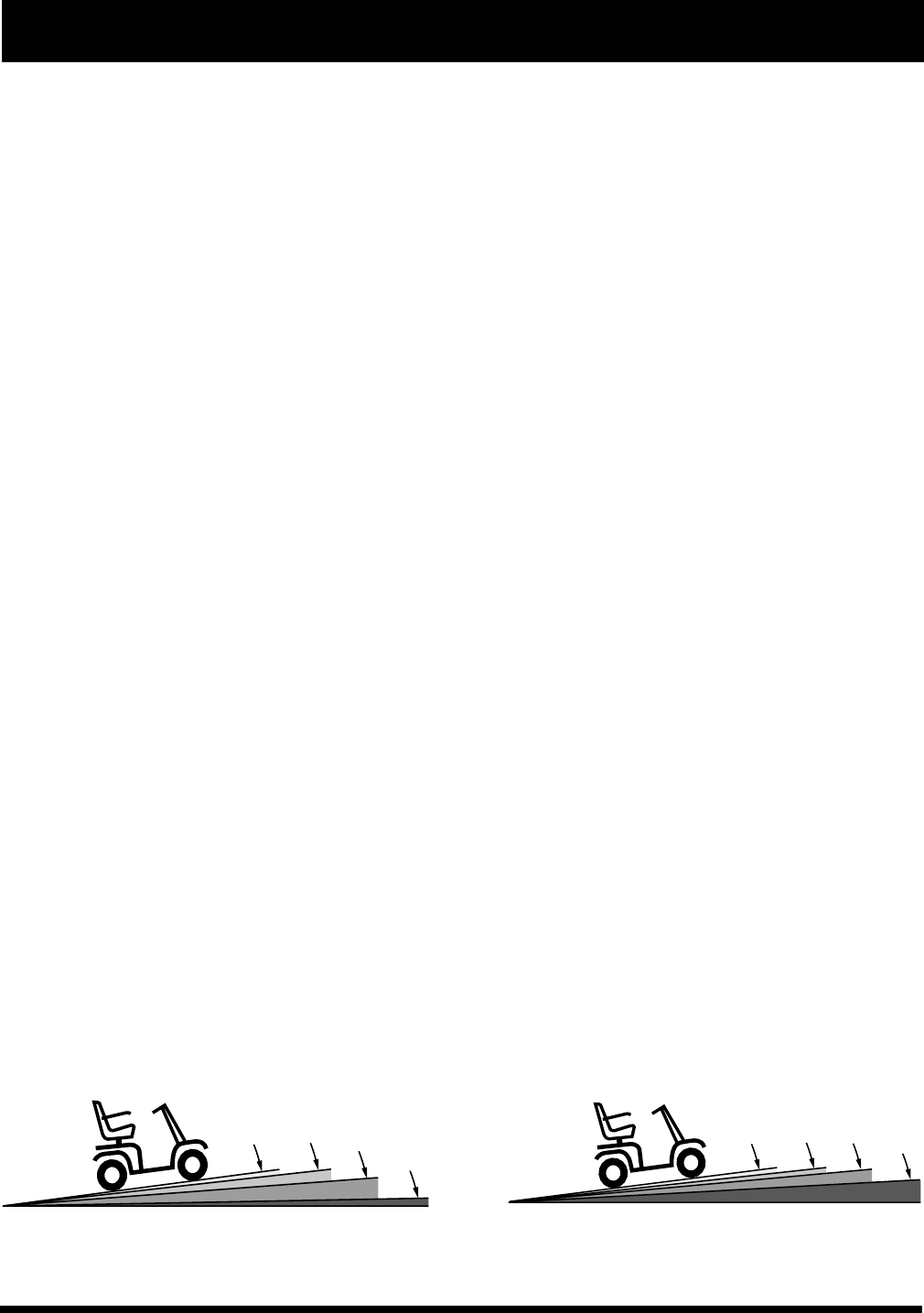
6 Shuttle
As you begin to use your Shuttle during your daily activities, you will encounter situations that, at first, may
require some practice to negotiate on your scooter. Simply take your time as you operate your Shuttle and
you will soon be in full and confident control as you maneuver through doorways, on and off of elevators,
up and down ramps, and over moderate terrain.
DOORS
n Determine if the door opens toward or away from you.
n Use your hand to turn the knob or push the handle or push-bar.
n Drive your Shuttle gently and slowly forward to push the door open; or drive your Shuttle gently and
slowly backwards to pull the door open.
ELEVATORS
Modern elevators have a door-edge safety mechanism that, when pushed, will reopen the elevator door(s).
n If you are in the doorway of an elevator when the door(s) begin to close, push on the rubber door edge
or allow the rubber door edge to contact the scooter and the door will reopen.
n Use care that pocketbooks, packages, or Shuttle accessories do not become caught in the elevator
doors.
RAMPS AND OTHER INCLINES
More and more buildings have ramps with specified degrees of inclination. These ramps are designed for
easy and safe scooter access. Some ramps may have turning switchbacks that require good cornering skills
on your Shuttle.
n Take wide swings with your Shuttles front wheel(s) around any tight corners. If you do that, the Shuttles
rear wheels will follow a wide arc and not cut the corner short or bump into or get hung up on any rail-
ing corners.
n When driving down a ramp, keep the Shuttles speed adjustment dial (see V. Description) set to the
tortoise (slowest speed setting) to ensure a safely controlled descent.
n Never drive your Shuttle across the side of a hill or diagonally up or down a hill, and do not stop, if
possible, while driving up or down an incline.
n Avoid sudden stops and starts.
Other inclines may be natural or, if man-made, not designed specifically for scooters. Figure 1 and 2
illustrate your Shuttles stability and its ability to climb grades under various weight loads and under con-
trolled testing conditions.
FIGURE 1. MAXIMUM RECOMMENDED INCLINE ANGLE
FIGURE 2. MAXIMUM RECOMMENDED INCLINE ANGLE
II. SAFETY
SHUTTLE 3
1
300 lbs.
4
250 lbs.
6
200 lbs.
7
150 lbs.
o
o
o
o
SHUTTLE 4
3
300 lbs.
5
250 lbs.
6
200 lbs.
7
150 lbs.
o
o
o
o



